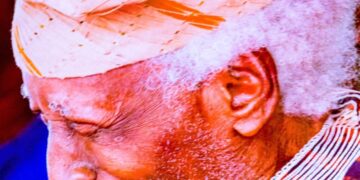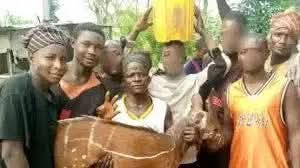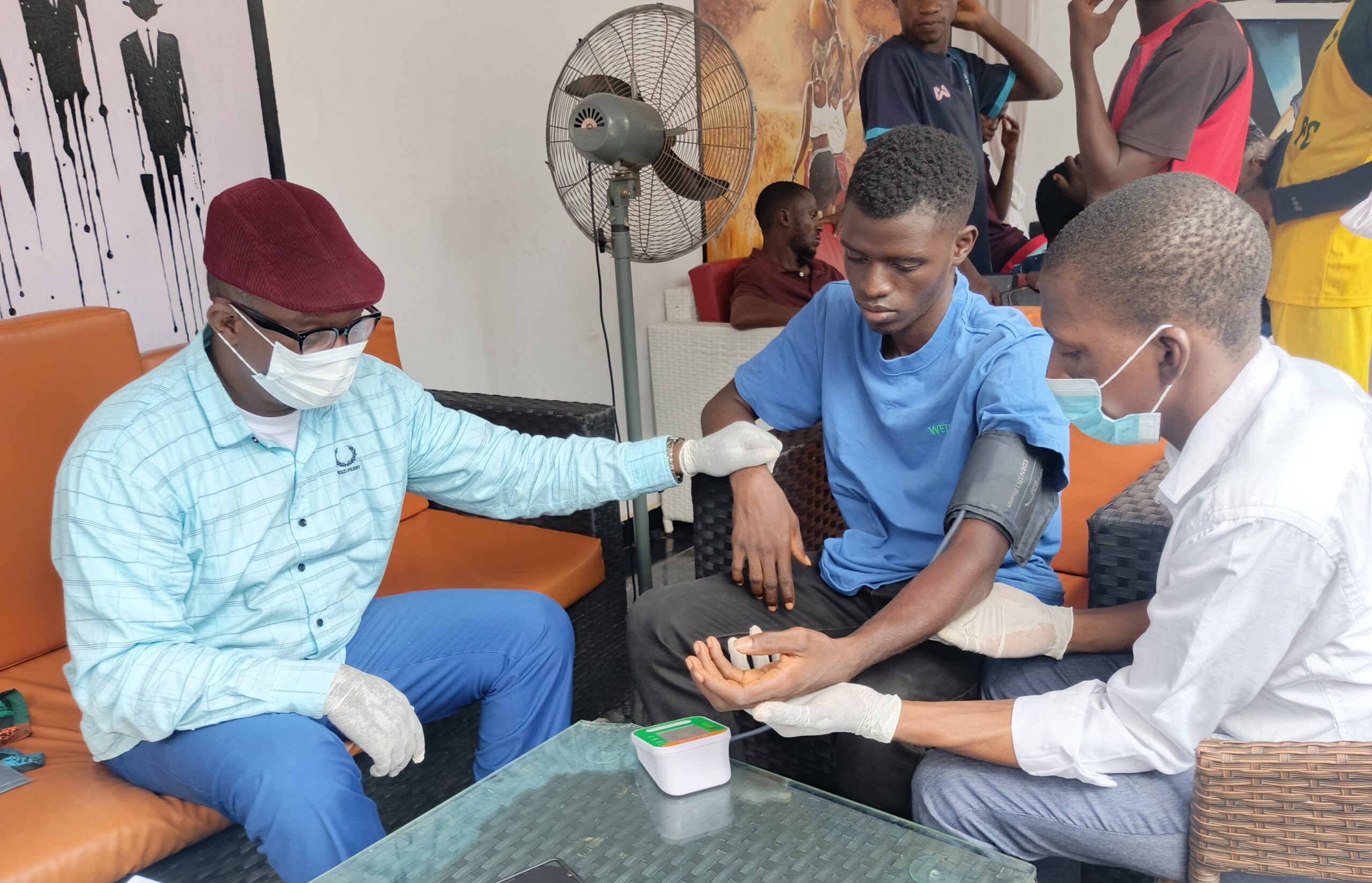My mother almost died while breeding the last baby of the family. First, she couldn’t deliver the baby herself, and again she unwittingly patronised the unskilled birth attendants that contributed significantly to her inability to deliver the baby herself. The agony was so much that she was later referred to the general hospital, where they also lacked the necessary equipments and adequate infrastructure coupled with misconception and weak integration of healthcare services. That year was a tough year for the family, I was barely in primary school. Howbeit, she delivered the baby later on, through the caesarian section miraculously.
Wherein, if I’m not mistaken, maternal mortality and poor child care has been on the increase in recent time with detrimental effects on the socioeconomic development of the nation. According to the World Health Organization, approximately 830 women die every day from preventable causes related to pregnancy and childbirth. More worrisome is the fact that 99% of all maternal deaths occur in developing countries. In Nigeria for instance, maternal mortality accounts for 59,000 deaths of women annually. Arguably, Nigerian women are 500 times more probable to lose their lives in childbirth when compared to most advanced nations of the world. Savants further noted that Nigeria is ranked second after India in global maternal incident rate and the worst in Africa. Furthermore, Nigeria’s maternal mortality is reported to be 545 per 100,000 births. The prevalence of maternal mortality in Nigeria has become very disturbing as every birth procedure becomes a potential incidence, from the report above, there is at least one case of maternal mortality in every 20 live births. This challenge may not be unconnected to the nation’s poor maternal health care system.
Here in Oyo state, Nigeria, based on the 2018 National demographic health survey, there are about 30 deaths per a thousand live births. The UNICEF analysis situation report for 2016 indicated that Oyo State contributed to more than a third of all the babies dying in Nigeria. Howbeit, in the pickle of this footing, the Oyo State government led by Engineer Seyi Makinde has deemed it fit in raising a consequential Initiative that will help alleviate the situation. I was impressed when the government recently launched an intervention scheme tagged “TOMOTIYA”, an initiative which intend to better the health of mother an children in the state.
Wherein, as a citizen who cannot bear to see women and children suffer or die, I was impress going through the foresight that bear the initiative, and how it can be of help to families, most especially mother and the children. Reading through Nigeria Tribune interview of the tomotiya initiative relayed by the special adviser to the governor on health, Dr Funmi Salami, she expressed how the idea will help focus on maternal and child care, as it is obvious that many mothers and babies are dying daily. Hence, Tomotiya was born to fix the problem and where there are weaknesses, it will eliminate and strengthen the areas. The agenda is birthed to contribute to a healthy and more prosperous society as healthy babies can grow into healthy adults and thrive. As described, the program plans on two years effective change, were it vision is to reduce maternal mortality by 30 percent and reduce neonatal mortality by 20 percent. Categorically, it’s quite impressive that TOMOTIYA intends in it vision by ensuring an increase use if health facilities by 60 percent, increased skill birth utilization by 50 percent, promoting early incitations of breastfeeding and essential breastfeeding, as well as setting up newborn corners in one Primary Health Care Centres per ward; as well as setting up special baby units in secondary health care facilities. This, as unfurled will commence with a pilot project project with UNICEF in Saki West, Ibarapa North and Ibadan North-East local government areas. They are the three highlighted local government with worst indices.
Responding on how Oyo State intend to achieve increased skill birth utilization by 50 percent, Dr Funmi Salami laid down how the community midwives Initiative is really about unskilled birth attendants, as traditional birth attendants are part of the community and many people believe in them. Yet, more importantly, it’s about providing antenatal care. Hence, the idea is to sponsor them to community midwifery school for two years to relatively help them become midwives. And in that way, it will reduce the number of unskilled birth attendants, including those who will be advocates of good and proper antenatal care as well as safe delivery. Howbeit, funding will come from local government and private organisations.
Also, the State is set to adopt some specific programmes in meeting these target, such as the Health rangers. An initiative that was deployed in South Africa and found to be very effective. With the ward rangers, two respected members of the community per ward will be responsible for the health of the families in their ward, as they are going to be responsible for the immunization of those families, hanging of mosquito nets, bringing in mothers for family planning and all. Targets will also be given to them at achieve in a year. Moreso, the program will employ an emergency medical services that will be in community health taxes and designated committees who have cars or means of transport will be trained on basic life-saving skills. This is to aid members of the community to primary health centres for an agreed token. The emergency transport system to be developed is set to commence in Ibadan, the state capital and might likely start by January 2021. Hence, the State is getting a formal paramedic training this year at the College of Health Science and Technology, Eleyele. It’s also planning to have designated emergency departments where people are going to be trained to take care of emergencies, as the National Postgraduate College of Medicine has approved training for emergency in Nigeria and Oyo State in collaboration with the University College Hospital, Ibadan intends starting training emergency medicine doctors.
Readily, the Government is also prepared for any barrier to accessing health facilities by some less privilege members of the community, as there is a planned intervention of insurance adoption programme. Under the insurance adoption programme, private individuals, companies, organisations and all will sponsor people for health insurance. For example, it is for about #8, 000 per life year, an organization might decide to sponsor as much people they can afford to palliaviate the situation.
Without much ado, it’s obvious that I buy into this meaningful initiative that is intended to better our vulnerable mothers and children. Hence, while praising the government on this initiative, it’s necessary to remind all government that maternal mortality and after birth health accomplice are rooted in most of the rural areas in Nigeria and is caused by other precipitating factors that are non-medical. These factors range from poverty, low level of education or absence of it, prohibited food, low purchasing power and certain harmful cultural beliefs and practices; more so, with the introduction of user charges in state and federal-owned hospitals, high percentage of women, especially in the rural areas, now patronize faith clinics and traditional practitioners as alternative health care. Yet pathetic, maternal mortality in this part of Africa is 175 times higher when compared to other developed nations of the world, and risk for pregnancy-related illnesses and adverse consequences after child delivery is much higher. Suffice to say therefore that when a woman dies from any preventable childbirth complication, a total of 500,000 deaths is recorded per year within the sub-Saharan African region. Our government must do more than this to protect the interest of mothers and innocent children, by providing all that’s needed for survival.
Government must always ensure to providing a maternal healthcare that is comprehensive as it includes educational, social, nutritional services as well as medical care during and posts pregnancy. Thus, poverty and lack of education influence the seeking behaviour of rural women. It is therefore important to focus on an overall health reform program that will involve maternal education, access to health care services and women empowerment which will enable them to make informed decisions on issues relating to their reproductive life. With Oyo State setting a pace like this, other government should join. The health of our mothers and children are consequential for national development.












